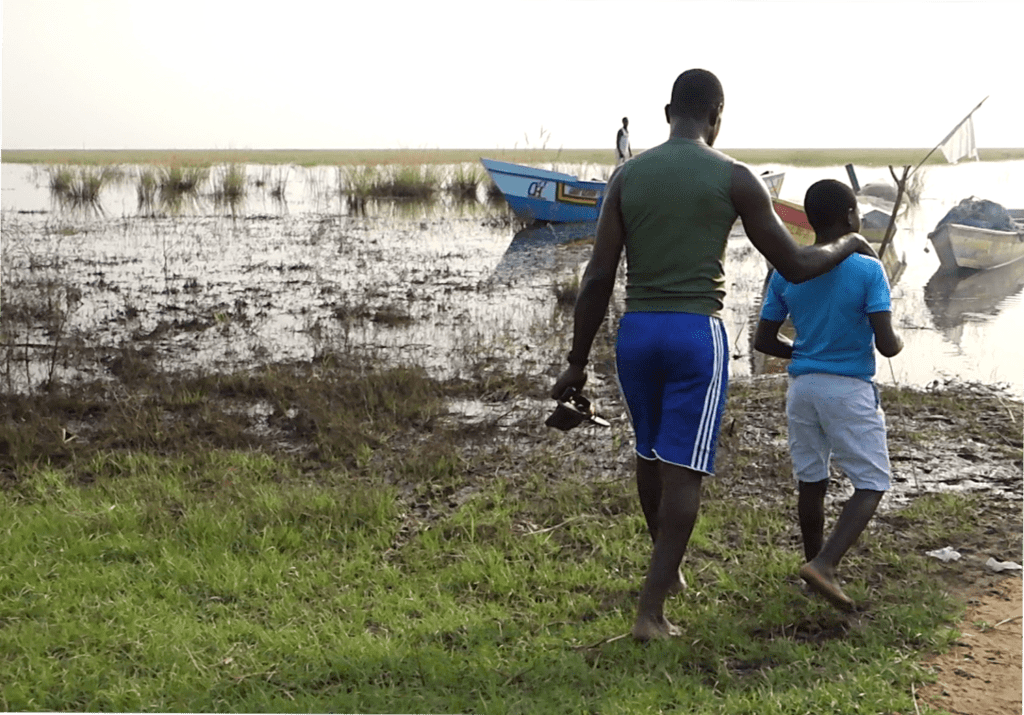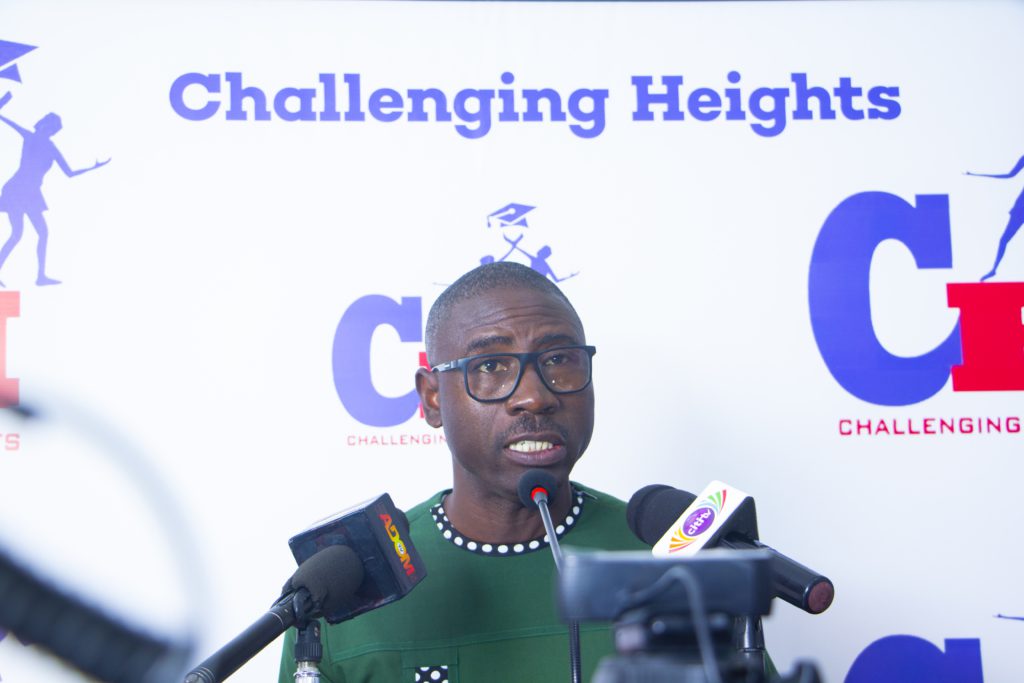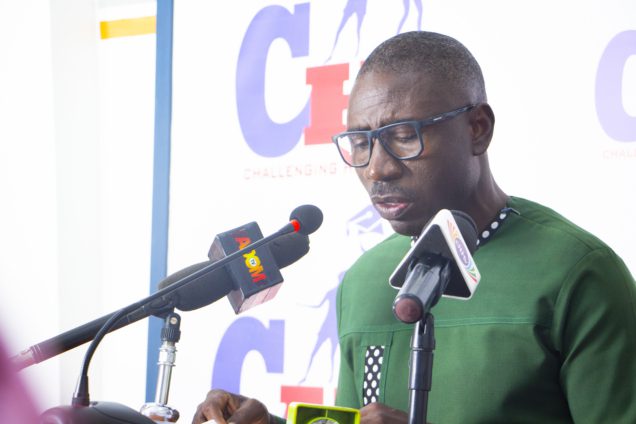Challenging Heights says it rescued a total of 153 children from forced work, human trafficking, and domestic servitude in 2021.
Those freed are made up of 106 boys, and 47 girls, between the ages of six and 17. These children were mainly from 12 out of the 16 regions of Ghana.
This brings to over 1,700 the total number of children Challenging Heights has rescued from slavery in the fishing communities in Ghana since our establishment in 2003.
Its President, James Kofi Annan says he is “particularly worried that the global community might not achieve the 2030 targeted goal 8.7 of the Sustainable Development Goal on the elimination of child trafficking and modern slavery in all its forms.”
He was speaking at a press conference organized on Tuesday, January 18, 2022.

The organization also highlighted a number of challenges against the progress activists have made over the years.
The first issues was with Covid-19.
“The COVID 19 pandemic has eroded the gains made in the sector, and worsened the vulnerabilities of women and children, making it difficult to predict when communities could rebuild resilience against slavery.
“According to a joint ILO and UNICEF 2021 report, the number of children in child labor has risen to 160 million worldwide – an increase of 8.4 million children in the last four years – with millions more at risk due to the impacts of COVID-19 pandemic.”
This is the first time, in two decades, the global community has witnessed increase in the number of children affected by child labor.
Secondly, Challenging Heights also found evidence to suggest that the worsening climate change impact is destroying family livelihoods, negatively influencing migration decisions, and making more people vulnerable to human trafficking and slavery.

“Our evidence show that the climate crisis presents a horrifying new threat to the freedoms of people who are already at risk of modern slavery. In a 2021 report we jointly conducted with Antislavery International, and the International Institute of Environment and Development, climate change was identified as a risk multiplier that makes people more vulnerable to exploitation.”
Challenging Heights also expressed worry over the disruptions in the education system occasioned by COVID 19, and its associated school closures, long vacation periods, and the uncertainties in the school re-opening for basic and secondary education system are fostering children’s vulnerabilities to trafficking.
“When children stay home for longer periods, they become exposed to trafficking easily. In some situations, poorer families are forced to allow their children to join their colleagues on the lake to “make money” to support the families and buy their school needs when schools eventually re-opens. Even worse for the girl child is the fact that, some get pregnant in the process, and dropping out of school.”
The group says the lack of access to medical care is further deepening the vulnerabilities of victims of trafficking and abuse was also seen as another situation militating against the organisation.
“This sometimes results in victims being forced to abandon the pursuit of justice, or are unable to address abuse-related medical issues, which eventually leads to severe physical and mental health conditions, and sometimes death.”
Challenging Heights says it shall, at the appropriate time, issue a comprehensive report on the impact of child trafficking on the health of its victims in Ghana.
“Unfortunately, younger children are becoming more vulnerable to slavery now, than it was previously. Challenging Heights has gathered evidence that shows that traffickers are losing their investments in older slavery victims, as a result of frequent escapes, refusal to work, and access to modern technology that blows their cover, and are therefore targeting younger children who are mainly invisible. “
Their study found that for every 10 children on the lake, six of them were between the ages of five and 11, as opposed to five years ago when six out of ten children were between the ages of eight and 17.
“The evidence clearly demonstrates the need to intensify awareness to increase knowledge, especially among vulnerable populations, in order to decrease further vulnerabilities.”
As the Ghanaian government readies itself to draft a new National Plan of Action against Human Trafficking, Challenging Heights is calling for policy reflections on the newly identified risks such as COVID 19 pandemic, as well as the linkages between slavery and climate change.
“There is also the need for policy reforms within the national health insurance scheme, to address abuse-related illness. We are also advocating for the effective implementation of the domestic workers’ regulation (2012), and are urging local and district assemblies to enact by-laws to regulate the activities of child domestic workers, as child domestic work has been identified as a breeding ground for trafficking and exploitation of children.”
According to them, if government is able to address the above policy issues, alongside strengthening our school systems, then we will be able to solve the problem of child trafficking.
Latest Stories
-
We expect significant reduction in prices of petroleum products in coming weeks – CEO AOMC
11 mins -
Betway Africa offers once-in-a-lifetime ‘Play-on-the-Pitch’ experience at Emirates Stadium
20 mins -
I coined the term ‘hype man’ in Ghana – Merqury Quaye
25 mins -
Vasseur questions ‘strange momentum’ of Formula One race director change
47 mins -
“I am disappointed in Kojo Manuel” – Merqury Quaye on “no tie” comment
48 mins -
Nana Kwame Bediako; The beacon of unity
50 mins -
Western Region: NDC youth wing embarks on phase 2 of ‘retail campaign’
1 hour -
Action Chapel International holds annual Impact Convention in November
1 hour -
Jana Foundation urges young women to take up leadership roles
1 hour -
All set for Joy FM Prayer Summit for Peace 2024
2 hours -
Managing Prediabetes with the Help of a Dietitian
2 hours -
Joy FM listeners criticise Achiase Commanding Officer’s election comment
2 hours -
Legal Aid Commission employees threaten strike over poor working conditions
2 hours -
Ghana ranked 7th globally as biggest beneficiary of World Bank funding
2 hours -
IMF board to disburse $360m to Ghana in December after third review
2 hours

